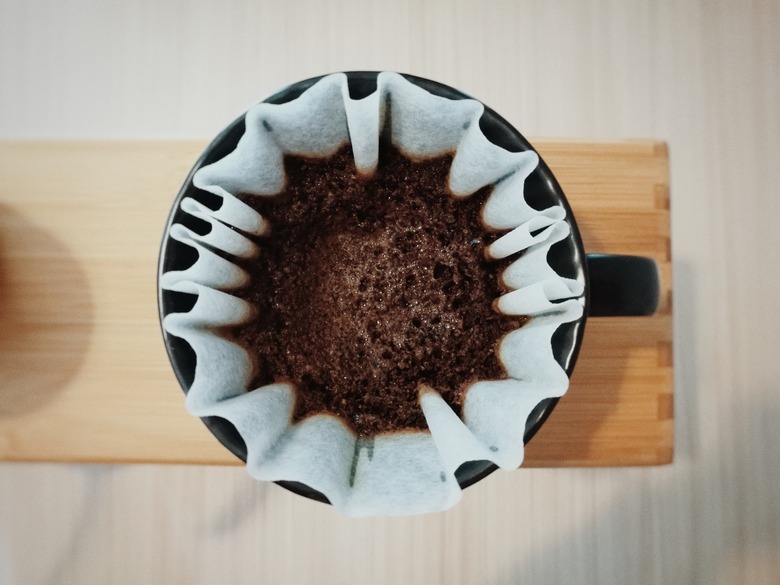How Does A Coffee Filter Work?
You don't really need a coffee filter to make coffee. Using a brewing system with a filter is simply a convenience; a method of brewing coffee that doesn't leave grounds in your cup or take unnecessary time. To make the best possible coffee it helps to know a few things, including how a coffee filter actually works.
Coffee Brewing 101
Coffee Brewing 101
The whole point of brewing coffee is for water to dissolve flavor compounds from the ground beans and bring them to your cup. The temperature of your water plays a role in that process and so does the grind of your coffee. The finer the grind and the hotter your water, the more quickly the flavors are extracted.
That means time is a variable as well. The water should stay on your grounds long enough to fully extract desirable flavors, but if they stay in contact for too long the coffee becomes "over-extracted," which gives it bitter and undesirable flavors. This three-way balancing act — time, grind and water temperature — applies to every coffee-making method. If you're making drip coffee, then your filter makes a fourth variable.
What a Coffee Filter Does
What a Coffee Filter Does
The filter serves a few different purposes in coffee brewing. First, it contains the grounds physically and keeps them separate from the finished coffee. Second, it helps control how quickly the water flows through your grounds. This determines how much extraction you'll get and how the resulting cup of coffee will taste.
If you're pouring the water manually over a filter full of grounds, you can experiment with the grind and the temperature of your water until you get it exactly the way you like it. In an automatic coffee maker, the temperature is preset by the manufacturer, and it's the machine that determines how evenly the water and grounds come together.
Cone Vs. Basket Filters
Cone Vs. Basket Filters
Most coffee filters come in two standard styles, either basket or cone. Basket filters are round with a flat bottom and scalloped edges. They are mostly used in automatic coffee makers. The brewing chamber is much like a shower head, moistening the coffee grounds evenly from side to side. Your contribution to the process consists of spreading the coffee evenly within the filter.
Some automatic drip coffee makers use cone filters instead, and most manual drip coffee is made this way. The big advantage of a cone filter is that the water swirls through the grounds more thoroughly on its way to your cup. You'll usually get better, more even extraction as a result.
Metal Vs. Paper Filters
Metal Vs. Paper Filters
The two main types of filter are disposable paper and reusable metal mesh. Although the metal variety are more resource-intensive to manufacture, they reduce the quantity of paper in the waste stream. You'll use some water rinsing them, but the Sierra Club considers that to be a negligible factor in the environmental cost of your cup of coffee.
There are a couple of practical differences between them. Metal mesh won't filter your coffee as finely, so you'll get sediment in your cup unless you use a slightly coarser grind. Paper filters can extract all but the finest of particles, so you can use them with very finely ground coffee.
Paper and metal filters can be used interchangeably, but there's heated debate over which produces a tastier cup. Fans of metal filters hold that they give a bolder, fuller-flavored cup because they allow the coffee's natural oils to pass through unhindered. Paper filter aficionados argue that metal filters are inferior for exactly the same reason, believing those oils to contain undesirable "off" flavors. Unless you already have strong opinions on the subject, it's worth trying both paper and metal filters with your favorite coffee to see which you prefer.
